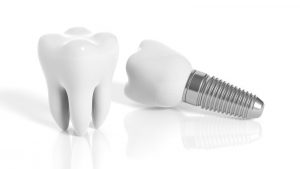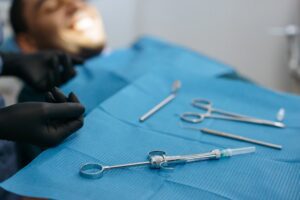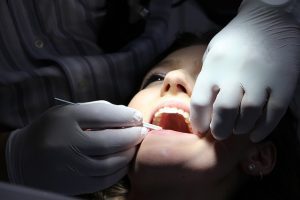Oral cancers, just like most cancers, are a very real risk. Oral cancers are the 14th most common type in the US, and the 3rd most common type among biological males. But the good news is that, among the many types of cancers, oral cancer is extremely preventable, and when caught early, highly treatable. That’s because the risk factors that make you susceptible to oral cancers are largely under your control.
Let’s discuss the details of oral cancers: types, symptoms, risk factors, prevention, and treatment:
What is Oral Cancer?
Oral cancers are any cancer that starts in the mouth. They can occur anywhere on the lips, tongue, cheek, inside of the mouth or throat. There are two main types of oral cancers that are defined by which type of cells they first infiltrate:
- Squamous cell carcinoma is the most common type of oral cancer, and it starts in the squamous cells that line the inside of the mouth.
- Adenocarcinoma is a less common type of oral cancer, and it starts in the glandular cells that line the mouth.
Signs & Symptoms of Oral Cancers
Much of the time, the red flag that you need to visit your dental specialist for an oral cancer screening is a sore in the mouth that won’t heal. Other warning signs of mouth cancers include:
- Ear pain
- Growths/lumps
- Halitosis
- Lesions/ulcers
- Loose teeth
- Mouth pain
- Painful swallowing
- White or red patches
Risk Factors for Developing Mouth Cancers
There are a variety of risk factors that can result in cancerous lesions in and around the mouth. Many of these stem from lifestyle choices, but others aren’t your fault, which just makes it even more important to keep those regular dental exams and yearly x-rays to make sure nothing falls through the cracks.
Lifestyle risk factors for mouth cancers include:
- Tobacco use
- Alcohol consumption
- Poor dental hygiene
- Unprotected sun exposure
Health risk factors for oral cancers include:
- Fair skin
- Diabetes
- HPV
- Chronic gum disease
- Family history of oral cancer
Prognosis & Treatment for Oral Cancer
The good news is, when caught early, oral cancer is highly treatable. In fact, the survival rate is 80% at 5 years. The key, though, is that early detection and timely treatment. Treatment methods for oral cancer include:
- Surgery to remove the lesion and a bit of surrounding healthy tissue
- Radiation therapy (alone or in combination with surgery)
- Chemotherapy (alone or in combination with surgery and/or radiation therapy)
Prevent Mouth Cancer by Taking Control of Your Dental Health
Because lifestyle factors play a huge role in most cases of oral cancer, it means you have a great deal of power in preventing the disease. Ways you can prevent oral cancer include:
- Eat nutritious fruits and vegetables
- Keep proper dental hygiene
- Limit your red meat intake
- Moderate your alcohol intake
- No tobacco use of any kind
- See your dentist every 6 months
- Stay away from fried, broiled and microwaved foods
- Stay away from processed foods
- Wear chapstick with SPF when you’re in the sun
- Get the HPV vaccine (that’ll protect you from a bunch of other cancers, too!)
In addition to keeping a healthy lifestyle and understanding the need to stay on top of your daily brush-and-floss routine, take a look around the inside of your mouth in a mirror once a month. If you notice any changes, schedule an appointment with your dentist for an oral cancer screening. Nothing wrong with covering all your base – better safe than sorry.










